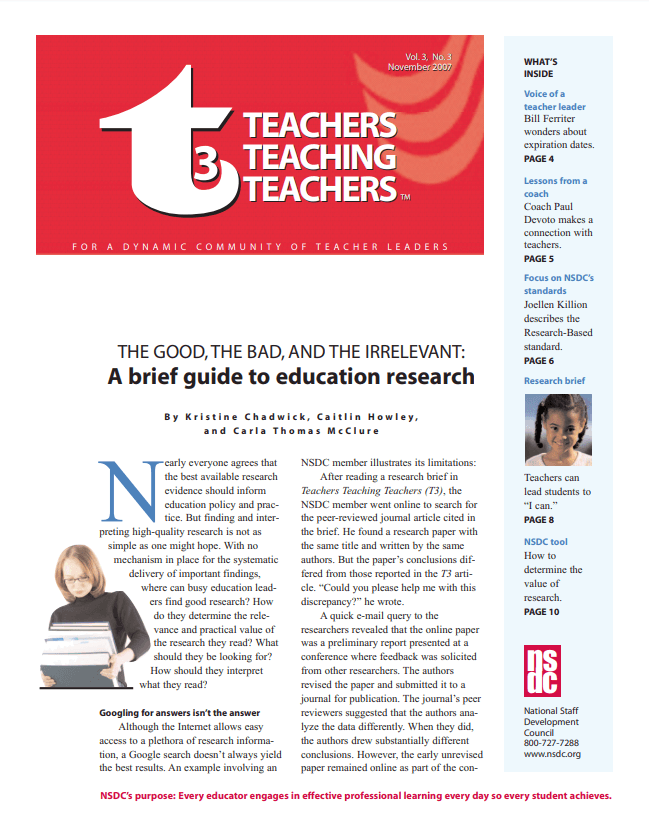
Teachers Teaching Teachers, November 2007, Vol. 3, No. 3

The good, the bad, and the irrelevant: A brief guide to education research
Information from research studies can provide valuable guidance to educators as they make decisions about their instructional practices. But finding and using research isn't always simple.
The authors offer practical advice on locating and interpreting research from a variety of sources. They also list key web sites that serve as starting points for tracking down credible research information.
By Kristine Chadwick , Caitlin Howley , and Carla Thomas McClure
Voice of a teacher leader: Can teacher leaders go stale?
Once teachers leave the classroom to take on other leadership roles, Ferriter wonders, do they have expiration dates? That is, is there a point when those leaders don't have enough recent experience to effectively lead teachers?
Read more about one teacher leader's thoughts on what it means to stay in the classroom and how that limits -- or extends -- his leadership "shelf life." (Available to the public.)
By Bill Ferriter
Lessons from a coach: Coach creates a bond
Paul Devoto is a first-year math coach at Jonas Salk High-Tech Academy in Carmichael, Calif. Read how this young educator establishes working relationships with all teachers.
Focus on NSDC's standards: Research can improve practice
The idea of incorporating research into a decision-making process is quite intimidating to a lot of educators. In this month's column, Killion explains what it means to begin to incorporate information from research into practice.
The article concludes with several practical ways coaches and teachers, working in teams, can become more research minded. (Available to the public.)
By Joellen Killion
Research brief: Leading students to say I can
A recent study published in the Journal of Advanced Academics indicates that teachers who participate in targeted professional development can increase student self-efficacy. Why is that important? Other studies show that students with a higher sense of self-efficacy are more likely to take on new tasks and attain academic goals.
By Carla Thomas McClure
NSDC tool: Reading research
This month's tool was created to help educators critically review the research studies they read. The form also provides a place for readers to keep track of important notes and implications.

